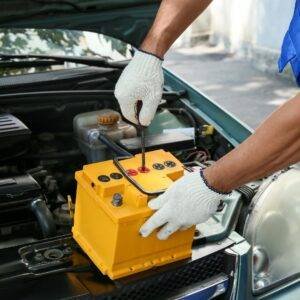Changes to Electric Vehicle Incentives in Ireland: What You Need to Know
Electric cars are becoming increasingly popular in Ireland, and as their uptake grows, it’s natural for incentives to evolve. In the 2024 budget announcement, Minister for Finance Michael McGrath outlined some changes to these incentives. Some measures will remain in place, while others will gradually phase out over the coming years. In this article, we will explore what has changed, what has stayed the same, and most importantly, what these changes mean for you.
Purchase Grants
One of the significant changes to Ireland’s electric vehicle (EV) incentives is the reduction in the grant for purchasing a new electric vehicle. Previously, this grant could reach up to €5,000. However, starting from January 1, 2024, the maximum grant has been reduced to €3,500 for qualifying vehicles.
It’s important to note that to qualify for the grant, the vehicle must be fully electric, fall under the M1 (passenger car) category, and have a cost between €18,000 and €60,000. This price includes any optional extras, paint, and delivery charges but excludes other grants or rebates. If the car exceeds this price range, there is no grant available. For cars priced below €18,000, the grant amount decreases proportionally. For example, a vehicle priced between €14,000 and €15,000 will only be eligible for a €1,500 grant.
VRT Relief
Aside from government grants, EV buyers in Ireland also benefit from Vehicle Registration Tax (VRT) relief. While VRT for high CO2-emitting vehicles is considerably high, reasonably priced electric cars have been exempt from paying VRT for some time.
The government has decided to extend the VRT relief scheme until the end of 2025. EVs with a purchase price of less than €40,000 will continue to be exempt from VRT. Buyers of vehicles priced between €40,000 and €50,000 will receive some relief. However, for cars costing more than €50,000, there will be no reduction in VRT. It’s worth noting that EV drivers still pay less VRT compared to drivers of conventionally powered vehicles, as VRT rates are based on emissions.
BIK Breaks
The government has also extended the Benefit-In-Kind (BIK) tax breaks for EV drivers. BIK tax is calculated using the car’s Original Market Value (OMV), and the relief is applied by deducting a specific amount from that value.
In 2024, the €10,000 deduction from the OMV will continue, and an additional €35,000 deduction will be applied to cars made available during 2023, 2024, and 2025. This means that drivers of any car with an OMV of less than €45,000 will pay no BIK tax on vehicles made available in 2023 and 2024. Vehicles with a higher OMV will only pay BIK on the value above €45,000. From 2025 to 2027, the OMV deduction will decrease. In 2025, only the €35,000 OMV deduction will apply, and it will decrease to €20,000 in 2026. By 2027, the deduction will further decrease to €10,000. Despite these changes, EVs will still incur less BIK compared to similarly priced combustion-powered vehicles due to lower emissions.
Toll Discount
The Low Emission Vehicle Toll Incentive (LEVTI), introduced in 2018, aimed to encourage the use of low- and zero-emission vehicles by offering toll discounts on roads such as the Dublin Tunnel and the M50. However, due to high demand, the scheme ended earlier than scheduled, on November 1, 2023. As a result, all private vehicles now have to pay the full toll price.
Charging
Previously, electric vehicle owners who wanted to charge their cars at home were eligible for a grant of up to €600 to cover the cost of purchasing and installing a home charging unit. However, the Sustainable Energy Authority of Ireland (SEAI) has reduced this grant to €300 and now requires specific criteria to be fulfilled for eligibility.
These changes to EV incentives in Ireland reflect the evolving landscape of electric mobility. While some incentives are being reduced or phased out, others remain in place to support the transition to greener transportation. It’s important for prospective EV buyers to stay informed about these changes and consider their implications when making purchasing decisions.



